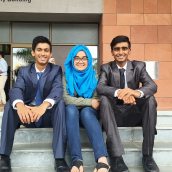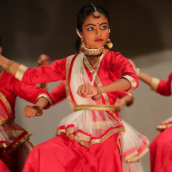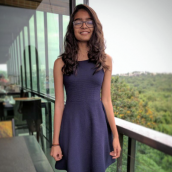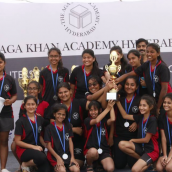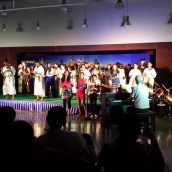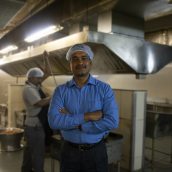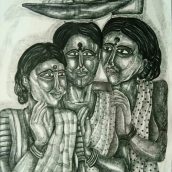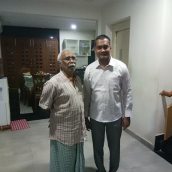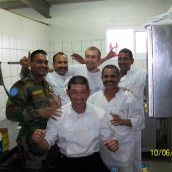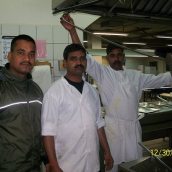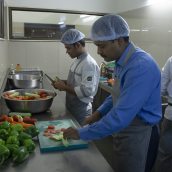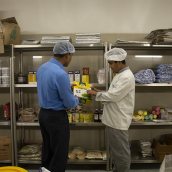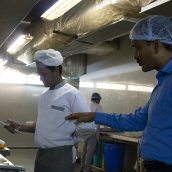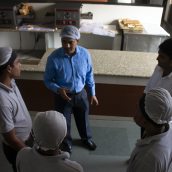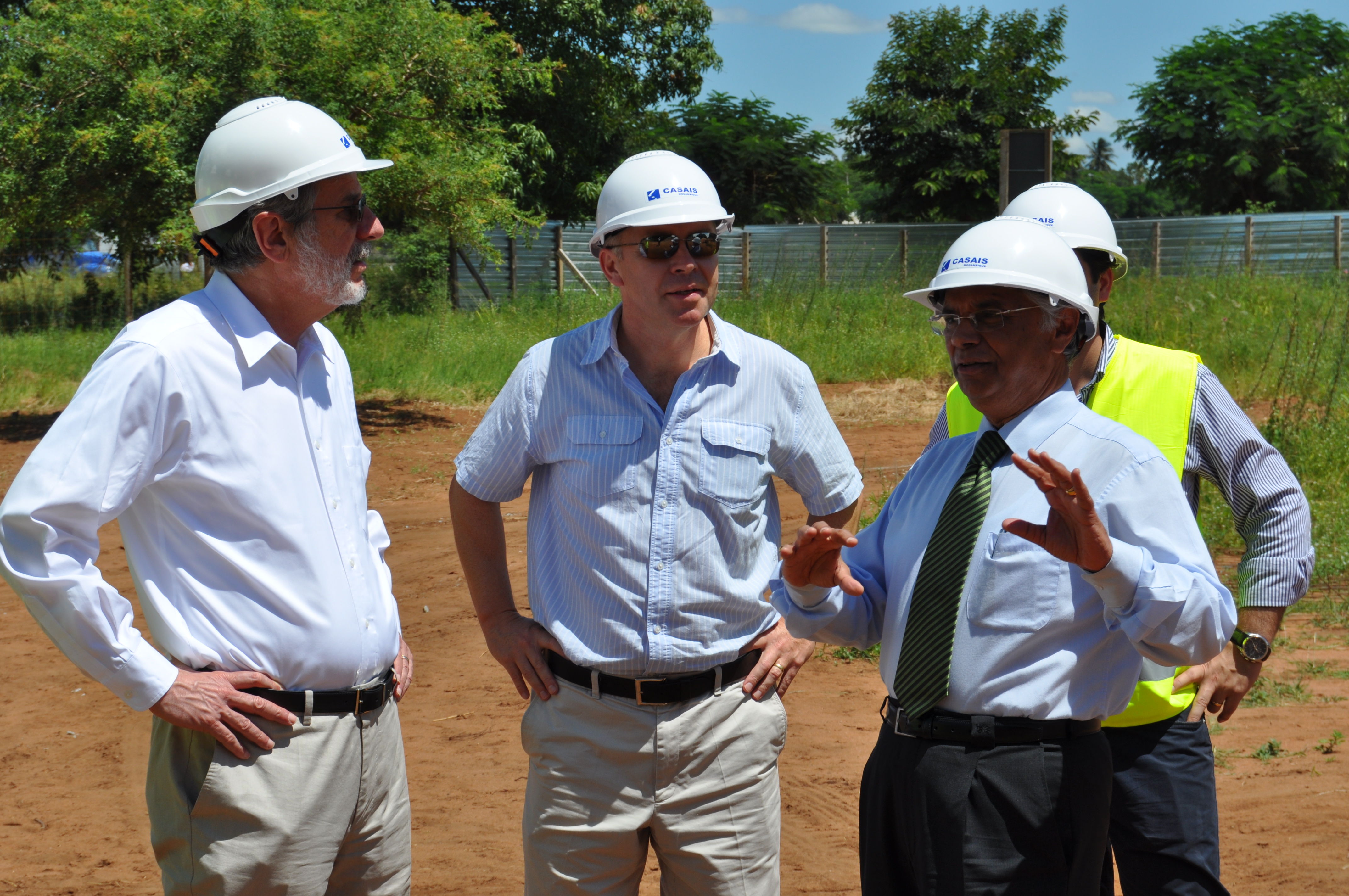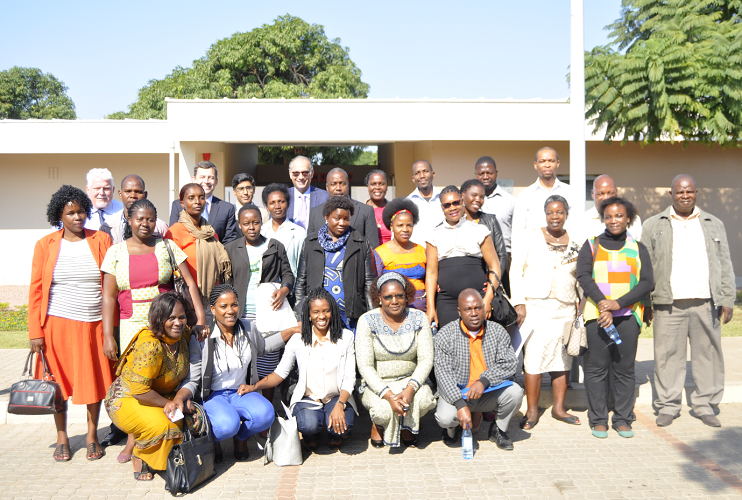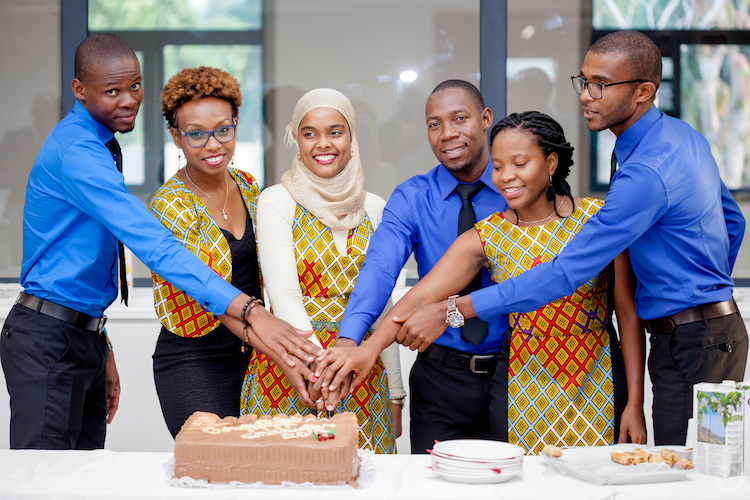
Admission Requirements
The Academy uses a multifaceted assessment in identifying students. The assessments enable students to demonstrate their cognitive, literary, mathematical, creative and leadership abilities.
Admission is competitive and based on student merit, regardless of a family’s ability to pay. The Academy endeavours to meet the demonstrated financial need of each admitted student.
Please click here to access the application forms.
Junior School
Years 1–5: Primary Years Programme (PYP)
Students entering year 1 should have completed at least three years of nursery school and must be 6 years of age by 31 August of the year of entry.
All prospective students must demonstrate a potential for high academic achievement and demonstrate competency in literacy and numeracy. Each applicant from year 2-5 must sit a standard assessment in logic, English (reading and writing), mathematics and creativity. Applicants will also have personal interviews with key members of the Junior School staff as part of their application process.
Senior School
Years 6–10: Middle Years Programme (MYP)
All students applying for a place in the Senior School must have attained high scholastic achievement in their former educational institutions. They must also demonstrate a keen interest and participation in community service projects outside the classroom and/or extracurricular activities such as sporting activities, clubs, arts and music.
All applicants must schedule an appointment for a standard assessment test in logic, English, mathematics and problem-solving at the school, in addition to providing past student grade reports and certificates of achievement. Applicants will also have personal interviews with key members of the Senior School staff as part of their application process.
Diploma Programme
Years 11–12: Diploma Programme (DP)
Applicants for the International Baccalaureate (IB) Diploma Programme at the Aga Khan Academy Mombasa, must have demonstrated outstanding academic achievement as well as a proven record of civic mindedness and participation in community projects.
The application process requires prospective students to undergo a standardised assessment test in English, mathemathics and logic as well as an interview with IB Diploma Programme coordinators and key members of the Senior School staff.
New students will not be accepted in the year of the Diploma exam.
Dania Quadri (Class of 2014): Giving back as an alumna
“Being part of an open-minded community that encouraged challenging what we were taught, the willingness to accept one another and inspire each other to grow constantly, was very refreshing. I credit these experiences for much of whom I am today.”
– Dania Quadri, Class of 2014
She was also instrumental in helping to organise the Mental Health Awareness Week (MHAW) in September 2016.
“As I aspire to be a doctor, I feel that it is necessary to acquire experience in a role that demands care, patience and a great deal of understanding,” she explains. “I knew teaching and organising the MHAW would contribute to my personal growth and career aspirations but it would also allow me to give back to my school – something very important to me.”
Through MHAW, Dania was able to contribute to reducing the stigma associated with mental illness within the Academy community.
“As a student myself, I know how hard it is for students who are mentally unwell to cope with studies and social life at school," she said. "I wanted to spread awareness about it being perfectly normal to feel mentally unwell, to know the difference between clinical illness and just a rough emotional phase, and to encourage students to seek help and advice if they are feeling low.”
Her internship made her realise she was more passionate about education than she thought. She particularly enjoyed the responsibility an educator has in developing a student’s personality and knowledge.
“As a teacher, it was interesting to observe school from the other side," she said. "Spending time with all the teachers made me realise how much they actually care for their students. The support is incredible at the Academy and different learning abilities are not only understood but truly valued.”
Anahita Aman: Grateful for the Academy’s holistic approach to learning and development
Anahita Aman is in her seventh year at the Aga Khan Academy in Hyderabad. Having started there in grade 5, she is now a grade 11 student in the Diploma Programme. She is wise beyond her years and yet has a youthfulness that is contagious. She is full of hopes and dreams and strives to get the most out of her days at the Academy so that she can ultimately give back to the community and society at large.
For Anahita, the strongest part of the Academy is its holistic approach to student development. “They don’t just focus on the academics but also on sports, music and art – so in that way it’s a really holistic approach to learning, and it’s helped me develop into a multidimensional and multifaceted person,” Anahita says. This holistic approach means that she gets the freedom to explore her passions, and that excites her. She loves music – whether it be singing, playing the keyboard and tabla, or learning Indian dance. She is also a self-proclaimed feminist who is passionate about gender-based violence, gender equality and education for girls. She recently had the chance to fuse these two passions as part of a personal project requirement at school. She wrote, composed, and performed her own songs with powerful messages on these topics.
This year, Anahita made a shift to the residential programme and says that it has been a great learning experience – one that has forced her to come out of her shell. She has learned how to better manage herself and her time, and she has become more independent and more social. “I learned how to adapt to my surroundings, how to adjust with other people and to make things work.” But Anahita feels that she has grown in other ways also, and this stems again from the holistic approach of the Academies.
“Service and action is mandatory as a part of the curriculum…they emphasise the need for community awareness, for concern about society, and they emphasise the need to give back and to make positive and effective contributions to society.” For the service and action component of the Academy’s programme, Anahita was part of fundraising teams that raised money for nearby government schools to install water filtration systems and purchase sports equipment, among other things. “We don’t look at it as an obligation or a compulsion but we do it out of passion, and the Academy gives us that passion, that feeling or need to give back to society,” Anahita says. She is proud of her service accomplishment along with many others that the Academy has also helped her to achieve.
She is a member of the journalism club and has made great strides in her writing skills, including how to better articulate her thoughts. She has taken part in a national sports tournament where she represented her school in football and track and field, having won a silver in high jump. And she has been part of the Model United Nations where she not only got a real sense of how the world works, including how people live and what the prevalent issues are, but also developed skills in public speaking, problem solving and knowledge application. Anahita says, “The Academy helps us apply this knowledge to real-life situations.”
The holistic approach to learning and development that the Academy takes is something that Anahita believes makes it unique. But there are other things too. For one, there is no spoon-feeding. Instead, you’re taught how to learn and how to learn on your own – the approach is not one of rote learning but rather application of real-life situations. She’s also really happy that the Academy creates a safe space. “We have that sense of comfort that there’s no pressure of performing and we have the space to experiment with things. We don’t feel pressure at any point, we don’t feel stressed, and we don’t look at exams as huge challenges but as small barriers that we can overcome.”
Anahita also believes that the Academy’s mission and vision are both important and inspiring. In fact, it was the mission that attracted her parents to send her there. “It teaches us to be culturally rooted and diverse. It teaches us how to accept our differences and so we have this feeling of community,” says Anahita. The Academy also aligns within the framework of the International Baccalaureate (IB) programmes. As such, the attributes of its learner profile are very powerful in instilling life values. All of this is what she believes make it distinct from many other schools.
Anahita credits the Academy for helping her become less shy and less self-conscious. She says, “I feel like I have the comfort to be who I am and to express myself freely. I feel acknowledged and I feel I’m being appreciated for who I am.” When asked if there was any particular person at the Academy that played a big part in this, or whether there was someone she really looks up to, she says that she doesn’t account only one person as a role model but instead looks to the many amazing people she has met along the way for their different but equally important attributes. “I may like someone’s enthusiasm, someone’s hard work and dedication, the way they work with people, the way they bring people together,” Anahita says. “I like to get inspired by these characteristics, by these attributes from different people and imbibe them into myself to be the best person I can be.”
Anahita’s future looks bright. While she is still unsure of what exactly she wants to do, she has learned how to articulate her passion, and that in itself has given her a sense of determination. She hopes to be able to combine her interests in music and literature with humanities and gender studies. She imagines perhaps becoming a poet or musician and incorporating important messages into her work. “I think the Academy is giving me the space and the platform to explore what I’m actually interested in,” Anahita says, “and I think that will lead me to my ultimate ambition.”
By Ceisin Popat
Dhan Prasad - the Academy's own renaissance man
Dhan Prasad was born in Hyderabad after his parents relocated here from Nepal, and grew up in Red Hills. He joined the Institute of Hotel Management and Catering Technology, completing their Food Production & Patisserie course in the year 1993. In the following years, Dhan Prasad trained and worked at two of the premiere hotels in India, the ITC Grand Chola in Chennai and Oberoi Krishna in Hyderabad (renamed Taj Krishna). It was during this stint in Hyderabad that Dhan Prasad decided to pursue his passion for the arts. “You can call it my first love,” he says.
As a school boy, Dhan Prasad often visited the Jawahar Bal Bhavan in Nampally. The Bal Bhavan, with its high ceilings, yellow walls and large play area was created to be a place where children could hone their talents in the arts, learning music, dance, and, of course, drawing and painting. Here, he trained under artist and National Film Award winner, Thota Vaikuntam, whom he describes as his role model, guru and inspiration. “He used to encourage me by giving me big drawing charts and colours.” Dhan Prasad re-entered university in 1995, this time as a fine arts student at the Jawaharlal Nehru Architecture and Fine Arts University. His art, mainly sketches and acrylic, portray scenes of men and women, often at work, and always in conversation. The paintings are on large canvases, and though they have some of the stylistic attributes of Madhubani art, they are strikingly unique. The Bal Bhavan he went to is still active today and caters to around 3000 children in spite of being under-funded, and sharing its space with a local fire department.
“It was very tough to manage my work and my painting,” he says. Dhan Prasad was juggling university work and his job at the Krishna simultaneously at this time. As the pressure mounted, he was informed that he had been chosen to be Junior Commissioned Officer (JCO) of catering in the Indian Army, a proposition that comes from the desk of the President of India. Dhan Prasad describes joining the army as a bold decision. He remembers thinking, “I cannot ignore this opportunity to serve my country.” So he, in his words, left his white chef’s robes and donned the olive green of the Indian army.
Glad to have the opportunity to serve his country with his culinary abilities, he worked in the army for 19 years, serving in its storeyed institutions across the country and even abroad. Dhan Prasad was among the forces sent from India to be a part of the UN’s mission to maintain ceasefire between Syria and Israel. “My most memorable days were as kitchen manager of an international kitchen at UNDOF (United Nations Disengagement Observer Force), Israel,” he shares. “My most challenging work was at IMA (Indian Military Academy), Dehradun and OTA (Officers Training Academy), Chennai.” In these kitchens, Dhan Prasad organised meals and hospitality services for 2000-2500 people every day. Standing in charge of these large operations gave Dhan Prasad an understanding of the workplace, responsibilities and leadership, which make him revered by those who work under and alongside him.
“Being an army man he brings discipline to our catering,” says Head of Operations at AKA Hyderabad, David Roy. “He’s always on the dot.” Dhan Prasad and David work very closely, and often under high pressure. “In three years, we have never missed catering at a single event, and this is because of our excellent kitchen, its staff, and of course, Dhan Prasad.” It is a great compliment to him that in spite of the demanding nature of their job, Dhan Prasad has created an atmosphere of conviviality in the kitchens and among his support staff. “He understands his job, his responsibilities,” says David. “But the problem with him is that he doesn’t say no to anyone!”
The demands of the Academy’s kitchen are different from those of a military kitchen, and Dhan Prasad relishes the challenges that come with this job. “The diversity [in the students, faculty] gives me an opportunity to challenge myself and be innovative and creative in our day to day catering services,” he says. Dhan Prasad also looks forward to the holy month of Ramzan and being able provide for fasting students at the early hours of dawn. “The Global Encounters holiday camps offer other opportunities to test our calibre,” he adds.
Working at a school, Dhan Prasad believes learning about the mammoth effort that goes into their meals could be beneficial to students’ education. “Students need to have responsibility toward their food." He wants students to be informed about the processes of the food & beverage industry and also about etiquette. “Our students are future ladies and gentlemen who will go out internationally and later become responsible citizens of the nation. Table manners count for a lot when it comes to the personality of an individual.”
At 17, Dhan Prasad knew he wanted to be in hospitality. Today, he is a chef, an artist, and a retired Subedar Major. The praise heaped on him is the kind that Swiss watchmakers pine for. He is efficient, dependable and yet creative. “Art is long and life is short,” he muses. “Cooking is an art and science, it never ends and we can’t master it. The only thing we can do is try, practice and keep doing good work.”
Written by Ajay Sundaram
